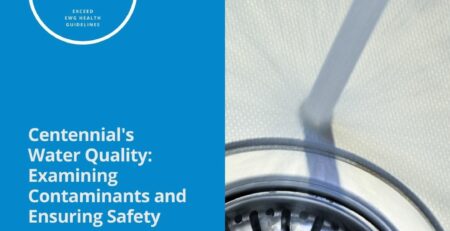The Essential Guide to Water Softener Installation for Castle Rock Homeowners
Nestled in the scenic beauty of Colorado, our town is not just known for its picturesque landscapes but also for its hard water. Hard water, rich in minerals like calcium and magnesium, can cause various issues in our homes. This is where water softeners come into play. In this blog post, we’ll explore the benefits of water softener installation for Castle Rock homeowners and how to go about it.
Understanding Hard Water in Castle Rock
Castle Rock’s water supply, primarily sourced from groundwater, tends to be high in mineral content. While these minerals aren’t harmful to health, they can lead to scaling in pipes, reduced effectiveness of soaps and detergents, and damage to appliances. Hard water can also affect skin and hair health.
Benefits of a Water Softener
- Extended Appliance Life: Soft water prevents scale buildup in appliances like dishwashers and washing machines, extending their lifespan.
- Improved Water Quality: Softeners enhance the overall quality of water, making it better for bathing, cleaning, and laundry.
- Cost Savings: By reducing scale buildup, water softeners help maintain efficient water heating, which can lower energy bills.
Choosing the Right Water Softener
- Size and Capacity: Consider the size of your household and water usage to select a softener with the appropriate capacity.
- Type of Softener: Options include salt-based ion exchange softeners, salt-free conditioners, and magnetic or electronic softeners. Each has its advantages and suits different needs.
- Regeneration Style: Decide between a timer-regenerated, meter-regenerated, or manually regenerated system based on your preferences and water usage patterns.
Installation Process
- Professional Assessment: It’s wise to start with a professional water test and consultation to understand your specific water treatment needs.
- Selecting a Location: The softener should be installed close to the point where the water enters your house but also in a place where it can be easily accessed for maintenance.
- Installation Steps: A typical installation involves connecting the softener to your home’s water supply and drainage system. This process usually requires plumbing knowledge and experience.
- Post-Installation: After installation, the system needs to be programmed based on your water usage and hardness level. It’s also crucial to understand the maintenance, like salt refilling for ion-exchange softeners.
DIY vs. Professional Installation
While some homeowners may consider a DIY approach, professional installation is generally recommended. Professionals can ensure proper setup and address any unique challenges your home might present.
Conclusion
For Castle Rock homeowners, installing a water softener is a smart investment. It not only enhances the quality of your water but also protects your home appliances and plumbing infrastructure. By understanding your needs, choosing the right system, and ensuring proper installation, you can enjoy the myriad benefits of soft water in your home.
Remember, the key to maximizing these benefits lies in selecting the right system and professional installation – a small step towards a significant improvement in your daily water use.











